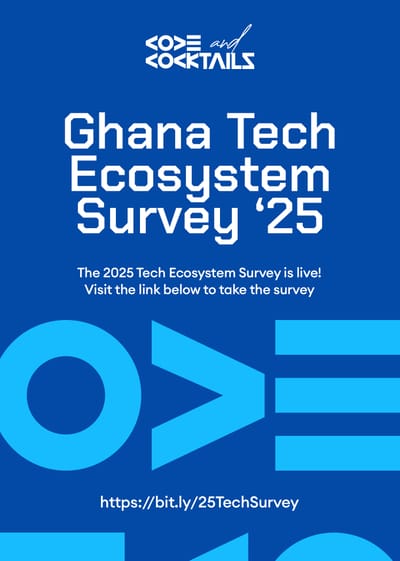So GitHub's CEO is stepping down... and honestly, it's the end of an era
Thomas Dohmke's announcement that he's stepping down as GitHub CEO might seem like just another executive departure. But buried in the organizational tea leaves is a seismic shift that will reshape how developers think about platform independence, AI tooling, and the future of open source itself.

You've probably seen the news by now: Thomas Dohmke is stepping down as GitHub CEO to "become a founder again." On the surface, it sounds like another executive wanting to get back to startup life. But dig a little deeper, and this is actually huge news for all of us developers.
Here's the real kicker: GitHub is getting folded into Microsoft's new CoreAI division. The quasi-independence they've had since Microsoft bought them for $7.5 billion back in 2018? Yeah, that's officially over.
The independence was always kind of fake anyway
Let's be real here, GitHub's "independence" under Microsoft was always more marketing than reality. Sure, they had their own CEO and could make some decisions, but come on. When you're sitting on over 1 billion repos and 150 million developers (myself included), Microsoft wasn't exactly going to let you run wild.
I remember when the acquisition happened, everyone was freaking out about Microsoft "ruining" GitHub. The company did a decent job of keeping that fear at bay by maintaining the illusion of independence. But honestly? It was always a matter of when, not if, they'd pull GitHub closer.
CoreAI is Microsoft's big bet on AI-everything
So what's this CoreAI thing? Microsoft launched it in January to basically combine Azure AI Foundry, GitHub, and VS Code into one massive AI development platform. Satya Nadella is betting hard on what he calls an "agents-first" future.
And you know what? It makes sense from their perspective. GitHub Copilot started as this cool coding assistant, but now it's becoming the foundation for how Microsoft thinks we'll all be writing code in the future. With OpenAI improving their coding models, Google pushing Project IDX, and Anthropic's Claude getting scary good at generating code, Microsoft needs GitHub to be way more than just a place to store our repos.
What this means for open source (spoiler: it's complicated)
Here's where I start getting a bit worried. GitHub has been trying to balance serving us open source folks while also making Microsoft money. That balancing act just got a lot harder.
I don't think Microsoft is suddenly going to start charging for open source repos; that would be suicide. But I'm already seeing the subtle push toward their ecosystem everywhere:
- Copilot works best with VS Code (shocking, I know)
- GitHub Actions pushes you toward Azure
- Codespaces runs on Microsoft's cloud
It's not that they're being evil about it, but when your AI assistant is trained on Microsoft's models, deployed through their cloud, and optimized for their tools... how "open" is your open source project really?
No new CEO? That's the real tell
The fact that Microsoft isn't rushing to name a replacement CEO tells you everything. They're not looking for another independent leader who might have their own ideas about GitHub's future. They want GitHub to be a product division, not a separate company.
My guess? We'll see someone promoted from within Microsoft's AI or dev tools teams. Someone who gets both the tech and Microsoft's strategy. Don't expect another external hire.
We're not going anywhere (and Microsoft knows it)
Despite all my concerns, am I switching to GitLab tomorrow? Nah. Are you? Probably not.
That's the thing, GitHub has 150 million of us and basically every major open source project. The network effects are insane. Where would we even go? GitLab is decent, but it's not GitHub. SourceForge?
Microsoft knows we're not leaving, which is exactly why they can afford to be more aggressive about integration now. We're essentially locked in by our own success on the platform.
What's next for us developers
Over the next year or two, I expect GitHub to transform into Microsoft's flagship AI development platform. We'll probably get some seriously powerful AI tooling; stuff that'll make Copilot look basic. But we'll also get deeper and deeper into Microsoft's ecosystem.
For open source maintainers like some of you reading this, it means navigating an increasingly complex relationship with a platform that's simultaneously essential to our projects and owned by a corporation with its own agenda.
The irony isn't lost on me
The platform that made it easier than ever for developers to collaborate on open source is now becoming a key weapon in the AI wars between tech giants. Dohmke gets to go back to startup land, but the rest of us are stuck figuring out what "open" even means when our code lives on servers controlled by a trillion-dollar company's AI division.
The golden cage is gone. What comes next will probably be more powerful and more convenient. But independent? Not a chance.
What do you all think? Am I being too paranoid, or not paranoid enough? Hit me up in the comments or on Twitter.
You can read more about Dohmke's departure here:
https://github.blog/news-insights/company-news/goodbye-github/
And oh, subscribe to my newsletter below lol.





Comments